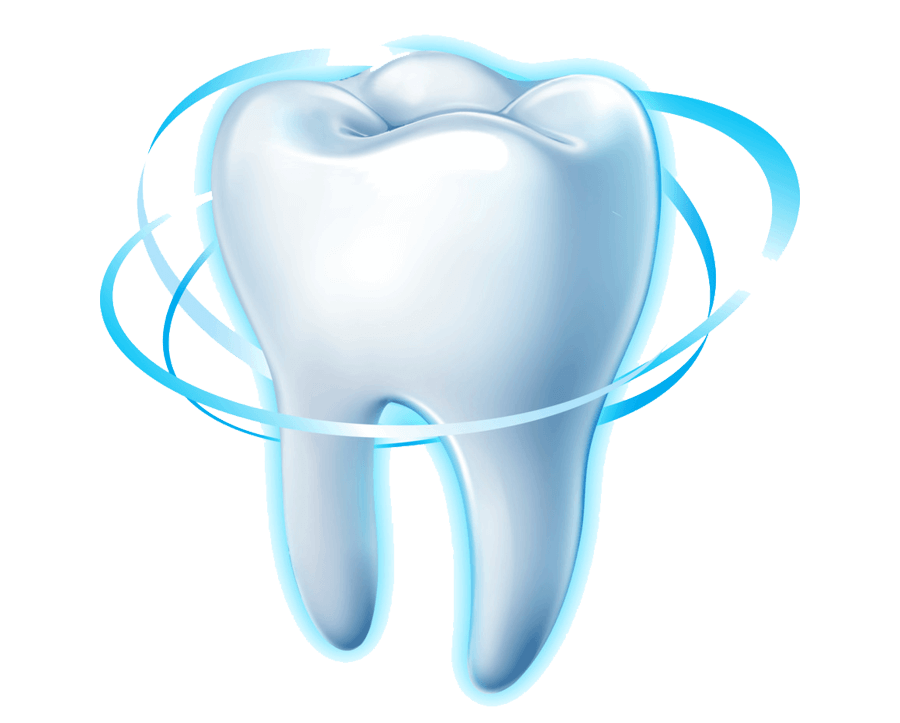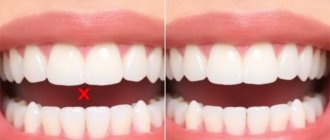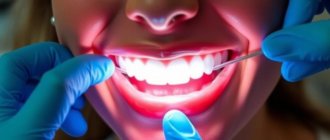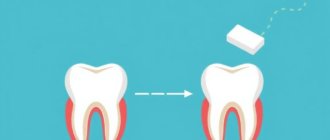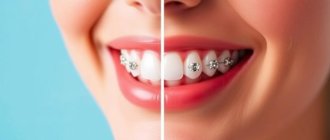Dry mouth, also known as xerostomia, is a surprisingly common condition that can affect anyone at any age. Whether you’re dealing with occasional dryness after a long day or struggling with chronic symptoms that impact your quality of life, finding effective dry mouth solutions is essential. The sensation of having a dry, sticky mouth can be uncomfortable and even painful, interfering with activities like speaking, eating, and swallowing. In this article, we’ll explore the causes of dry mouth, everyday remedies you can try, and medical treatments that provide lasting relief.
Содержание
- 1 Understanding Dry Mouth: What Causes That Parched Feeling?
- 2 Common Symptoms and Why They Matter
- 3 Easy Dry Mouth Solutions You Can Try at Home
- 4 Medical Dry Mouth Solutions: When Home Remedies Aren’t Enough
- 5 Natural Remedies to Consider
- 6 Preventing Dry Mouth: Lifestyle Choices That Matter
- 7 How to Choose the Best Dry Mouth Solutions for You
- 8 Tips for Managing Dry Mouth During the Night
- 9 Frequently Asked Questions About Dry Mouth Solutions
- 10 Summary Table: Dry Mouth Solutions at a Glance
- 11 Conclusion
Understanding Dry Mouth: What Causes That Parched Feeling?
Before diving into dry mouth solutions, it’s important to understand what causes this issue. Your mouth naturally produces saliva, which helps keep tissues moist, fights bacteria, aids in digestion, and protects your teeth from decay. When saliva production decreases or dries up completely, you experience dry mouth symptoms.
A variety of factors can cause this saliva deficiency. The most common causes include:
- Medications: Over 500 medications have dry mouth listed as a side effect, including antihistamines, antidepressants, blood pressure drugs, and over-the-counter cold remedies.
- Medical conditions: Diseases such as diabetes, Sjögren’s syndrome, and autoimmune disorders can impair saliva production.
- Aging: As we age, salivary glands may produce less saliva naturally.
- Radiation therapy: Cancer treatments to the head and neck frequently damage salivary glands.
- Dehydration: Not drinking enough fluids or losing fluids through illness or excessive sweating results in dryness.
- Habits: Smoking and alcohol use reduce saliva flow.
Understanding the underlying cause of your dry mouth is vital so you can choose the most effective dry mouth solutions tailored to your needs.
Common Symptoms and Why They Matter
Dry mouth isn’t just an annoyance—it can cause serious complications if left untreated. Recognizing the symptoms helps you take quick action. Common signs of dry mouth include:
- A sticky, rough feeling inside the mouth
- Sore throat or hoarseness
- Difficulty swallowing or speaking clearly
- Burning or tingling sensations on the tongue
- Cracked lips or mouth sores
- Bad breath
- Increased dental cavities or gum disease
Without saliva, oral tissues can break down easily, teeth can decay faster, and infections like thrush may appear. Dry mouth solutions aim not just to soothe symptoms but to protect your oral health in the long run.
Easy Dry Mouth Solutions You Can Try at Home
Thankfully, there are many simple and effective dry mouth solutions you can implement right away. These help stimulate saliva production, keep your mouth moist, and reduce discomfort.
1. Stay Hydrated Throughout the Day
Drinking water regularly is the easiest way to prevent and relieve dry mouth. Carry a water bottle and take sips often, especially if you’re in a dry environment. Avoid caffeinated or alcoholic beverages, which can worsen dryness.
2. Use Sugar-free Gum or Lozenges
Chewing sugar-free gum or sucking on sugar-free lozenges stimulates saliva glands to produce more saliva. Look for products containing xylitol, which also protect against cavities.
3. Practice Good Oral Hygiene
Brush your teeth at least twice daily with fluoride toothpaste and floss regularly. Use an alcohol-free mouthwash recommended for dry mouth to avoid irritating oral tissues.
4. Breathe Through Your Nose, Not Your Mouth
Mouth breathing increases dryness and can cause irritation. Nasal congestion relief, if needed, can help you breathe through your nose comfortably.
5. Modify Your Diet
Avoid salty, spicy, or acidic foods that can irritate a dry mouth. Include crunchy fruits and vegetables like apples and carrots; these naturally increase saliva production.
6. Use a Humidifier at Night
Dry air worsens mouth dryness. Adding moisture with a humidifier especially while you sleep can significantly help reduce symptoms.
7. Avoid Tobacco and Limit Alcohol
Smoking and alcohol can dry out your mouth and worsen symptoms over time. Quitting tobacco and limiting alcohol intake provide excellent dry mouth solutions with added health benefits.
Medical Dry Mouth Solutions: When Home Remedies Aren’t Enough
If your dry mouth symptoms persist despite home remedies, medical treatments are available that target saliva production more directly. Your healthcare provider may recommend:
| Treatment | Description | How It Helps | Possible Side Effects |
|---|---|---|---|
| Prescription Saliva Substitutes | Sprays, rinses, or gels designed to moisten your mouth artificially. | Provide temporary relief by coating the oral tissues with moisture. | Generally safe; may leave an aftertaste. |
| Saliva Stimulants (e.g., Pilocarpine, Cevimeline) | Medications that increase saliva flow by stimulating glands. | Effective for people with residual saliva production. | Sweating, nausea, increased urination. |
| Acupuncture | Alternative therapy that may stimulate salivary gland function. | Some patients report symptom improvement. | Minimal risk when performed by certified practitioners. |
| Changes in Medication | Switching or adjusting medications known to cause dry mouth. | Reduces drug-induced dryness when alternatives are available. | Must be done under medical supervision. |
Sometimes, the key to dry mouth solutions is working closely with your doctor or dentist to identify and address the root cause, whether that means adjusting medication or treating an underlying health condition.
Natural Remedies to Consider
0
If you prefer to avoid medications, some natural remedies may support saliva production or provide relief. These include:
- Aloe Vera Juice: Rinsing with aloe vera helps soothe inflamed mouth tissues and promote moisture.
- Herbal Teas: Teas made from slippery elm or marshmallow root have natural mucilage that coats and protects the mouth.
- Coconut Oil Pulling: Swishing coconut oil may help reduce bacterial growth and oral dryness.
- Vitamin C Rich Foods: Including citrus fruits and bell peppers supports oral tissue health.
While these remedies aren’t substitutes for clinical treatment when necessary, they can complement dry mouth solutions in mild cases.
Preventing Dry Mouth: Lifestyle Choices That Matter
Prevention is always better than cure. Adopting habits that protect your saliva glands and oral moisture helps keep dry mouth at bay long term. Some preventive tips include:
- Maintaining balanced hydration with water, herbal teas, and broths
- Avoiding excessive caffeine, alcohol, and sugary products
- Quitting smoking and minimizing exposure to irritants
- Regular dental check-ups to catch oral health issues early
- Managing chronic diseases carefully with proper medical oversight
How to Choose the Best Dry Mouth Solutions for You

With so many options, it might feel overwhelming to figure out which dry mouth solutions will work best for your unique situation. Consider these factors:
- Severity and Frequency: Occasional dryness may only require hydration and gum, while chronic cases need medical treatment.
- Underlying Causes: Address causes like medication side effects or diabetes to improve symptoms effectively.
- Personal Preferences: Some people prefer natural remedies or dislike certain flavors/textures in sprays or lozenges.
- Consult Health Professionals: Your dentist or doctor can guide you toward the safest and most effective options.
Remember, dry mouth solutions often work best when used together—hydration, oral hygiene, saliva stimulants, and lifestyle changes combine to provide relief.
Tips for Managing Dry Mouth During the Night
0
Dry mouth can be especially bothersome while you sleep, when saliva flow naturally decreases. To minimize nighttime dryness:
- Use a bedside humidifier to keep air moist
- Avoid drinking alcohol and caffeine late in the day
- Try a saliva substitute spray before bed
- Sleep with your head elevated to reduce mouth breathing
- Maintain nasal decongestants or allergy treatments if they help you breathe through your nose
Taking these measures can reduce irritation and discomfort, leading to more restful sleep.
Frequently Asked Questions About Dry Mouth Solutions
Can chewing gum really help with dry mouth?
Absolutely! Chewing sugar-free gum, especially those containing xylitol, stimulates saliva flow and keeps your mouth moist for longer periods. However, it’s best to avoid sugary gums as they can promote tooth decay.
Are saliva substitutes safe to use daily?
Yes, most saliva substitutes are safe for regular use and can be effective in keeping your mouth hydrated. Look for products free of alcohol and harsh chemicals to avoid irritation.
What lifestyle changes are most effective for preventing dry mouth?
Drinking plenty of water, avoiding tobacco and alcohol, practicing good oral hygiene, and managing any underlying health conditions are the best strategies to prevent dry mouth.
When should I see a doctor or dentist about my dry mouth?
If home remedies don’t improve your symptoms, or if you experience severe dryness accompanied by mouth sores, difficulty swallowing, or increased cavities, it’s time to seek professional care.
Summary Table: Dry Mouth Solutions at a Glance
| Solution Type | Examples | Best For | Notes |
|---|---|---|---|
| Home Remedies | Hydration, sugar-free gum, nasal breathing | Mild to moderate dryness | Simple, affordable, first-line options |
| Over-the-Counter Products | Saliva substitutes, moisturizing sprays | Moderate dryness | Temporary relief, easy to use |
| Prescription Treatments | Pilocarpine, cevimeline | Severe or chronic dry mouth | Requires medical supervision |
| Lifestyle Changes | Quit smoking, reduce alcohol | Prevention and symptom reduction | Improves overall oral health |
| Natural Remedies | Aloe vera, herbal teas | Complementary therapy | Varied effectiveness, gentle |
Conclusion
Living with dry mouth can be uncomfortable and disruptive, but the good news is there are numerous dry mouth solutions available to help keep your mouth moist, protect your oral health, and improve your overall comfort. From everyday habits like staying hydrated and chewing sugar-free gum to prescription medicines and natural remedies, the key is finding what works best for your unique situation. By understanding the causes and symptoms, adopting preventive measures, and seeking professional advice when necessary, you can take control of your dry mouth and enjoy a healthier, more comfortable life. Don’t let dry mouth hold you back—start exploring these solutions today and give your mouth the care it deserves.
